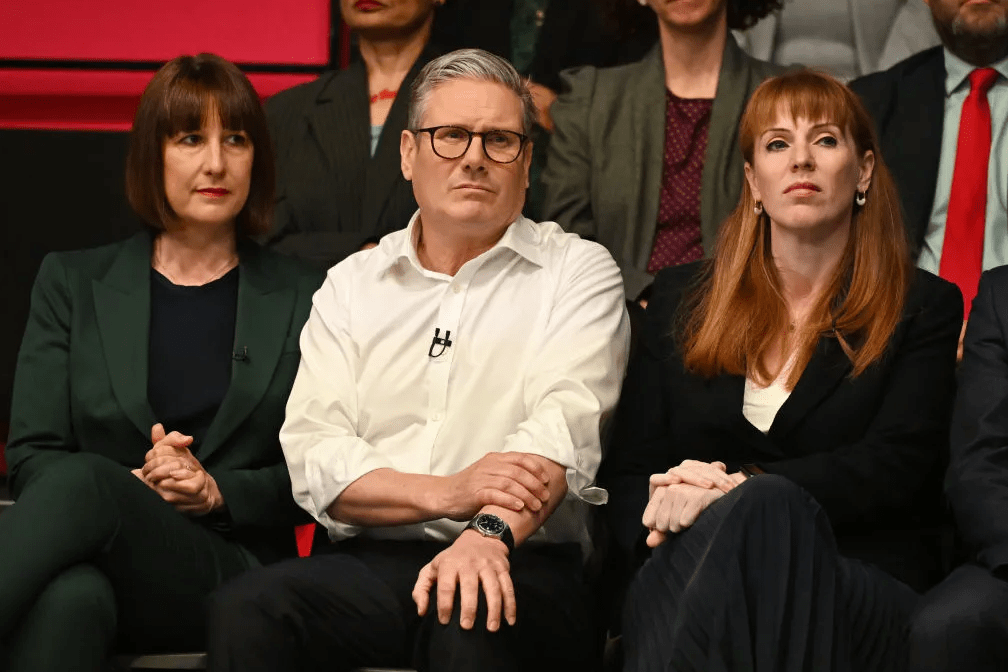Has Keir Starmer promised anything so far, during this general election, that will make anyone’s life significantly better? The clearest pledge is to impose VAT on independent schools and it’s hard to see how this benefits anyone. Many of the smaller schools will have to close and others will be forced to cut bursaries. The money raised is intended by Labour to increase the number of state-school teachers, but it will do this by just 1 per cent – and, even then, this non-ambition is to be staggered over a five-year period. When it comes to firm commitments this is about all Labour has to offer.
Starmer should be using his opinion poll lead to claim a democratic mandate for difficult reforms
Wes Streeting, the shadow health secretary, is doing his best to sound as if he has a reforming agenda. He has declared that within five years no one will be waiting more than 18 weeks for an operation. But isn’t this just a way of preparing us to accept a failing NHS for another five years? Streeting has no coherent policy for NHS improvement. Any plan will take at least a year to devise and another two years to implement.
The 18-week NHS pledge was anyway first made by John Reid when he was Tony Blair’s health secretary as part of the 2004 NHS improvement plan.
What Streeting’s pledge really shows is the staggering decline of ambition in the Labour party. It stands to inherit an NHS that costs £170 billion a year, twice as much as it did under Reid, so why would it need until 2029 to achieve what Labour once promised by 2008?
A sense of inevitability seems to have settled over the election campaign. Conservative proposals are seen as the insincere and desperate attempts of a doomed government and Labour ideas are increasingly accepted as the ‘change’ we need. In fact, Labour offers nothing new. When Streeting says he will use private-sector capacity to cut waiting lists, he is simply talking about what has been done for a quarter of a century.
From the moment she enters No. 11 Downing Street, Rachel Reeves will find herself besieged by demands from unions, quangos and all the many clients of the state who expect a Labour win to mean payday. Will Reeves and Starmer really keep public spending within the limits set by the present government’s economic plans? It is extremely hard to imagine an incoming Labour government with nothing to offer its political friends. The Blair government explicitly sided with the users of public services, not the providers. Starmer does not.
The policies already announced by Labour will be seriously expensive and none more so than the party’s promise to decarbonise the electricity grid by 2030. This is a ludicrously unworkable idea. The plan to spend £28 billion a year on green programmes has been abandoned and so the cost will end up falling heavily on energy consumers. Of course there is no admission from Labour that this is the case.
Labour has promised us a fully costed spending programme before the campaign is out, and when it arrives investors in UK government debt will be poring over it keenly. Labour was quick to present the bond market as a font of great wisdom when it was delivering a verdict on Liz Truss and Kwasi Kwarteng’s mini-Budget two years ago. Yet now it insists that, like Truss, it will find cash by ‘growing the economy’. Labour will have to be prepared for the possibility that markets may take issue with their plans, too.
There are only two ways to improve public services: to give them more money or to reform them. The Tories lazily took the first option on everything but schools. Labour will not be able to borrow more money, which means that it must embrace reform. So why does it seem so set on dismantling any Tory successes and assuaging its own special-interest groups? How will Reeves grow the economy? By offering stability, she says – a promise that would be more credible had she not dangled, then axed, the £28 billion-a-year economic policy.
Professor John Curtice, one of Britain’s best-known psephologists, says there is a 99 per cent chance of a Labour victory. Perhaps he is right. But for the next few weeks, the Labour party should have the decency to at least go through the motions of auditioning for the right to govern. Starmer could and should be using his massive opinion poll lead to claim a democratic mandate for the difficult reforms he must enact, but that he may struggle to get past the vested interests in his party.
The fact that Starmer is so timid at this stage in the election, and with this sort of lead, is a bad sign. The danger is that a Tory implosion will give him a huge majority that will encourage him to avoid the hard thinking that Blair was, in the end, forced to do. Those who cast their vote for Conservatives in the next election will not do so in the expectation of a Sunak victory but to try to achieve a healthier balance of power.







Comments